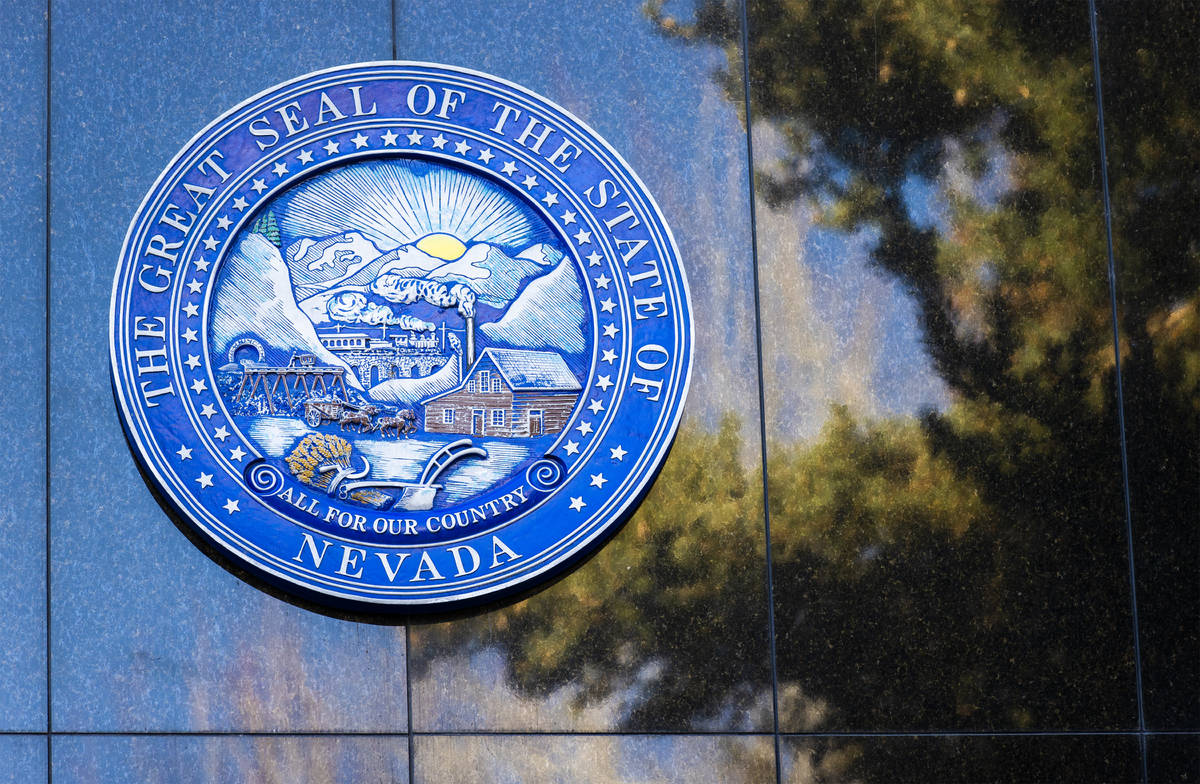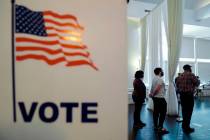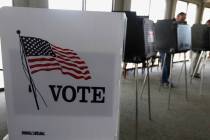No opposition to bill to pay inmates minimum wage
CARSON CITY – A bill that would see Nevada prison inmates earn at least minimum wage for work behind bars – instead of only cents per hour for some occupations – drew unanimous and bipartisan support in a Senate committee Wednesday, surprising even its prime sponsor.
Sen. Dina Neal, D-North Las Vegas, expected Senate Bill 140 to produce “its own level of controversy.” She hoped the bill at least would “highlight and hopefully educate on what I feel is a moral issue, and an issue in need of reform.”
What she got instead was full-throated endorsement from members of the Senate Judiciary Committee, with only minor concerns raised.
Other than questions over its implementation, “I agree completely with virtually everything in the bill,” said Sen. Ira Hansen, R-Sparks, one of the three Republicans who voiced support.
Besides earning wages well below the minimum wage – such as $1 per hour for fighting wildfires – inmates just leaving prison “find themselves released in poverty, with no job and potentially no housing,” Neal said. The state uses federal money to help former inmates find jobs on the outside, while private corporations pay wages to workers while they’re incarcerated.
Neal told the committee it was “counterintuitive that we would have private corporations paying wages to prisoners at 35 cents an hour, and then place these ex-offenders on the street in poverty, and then have additional government money to then help find them a job.”
‘Convict leasing’
She said her research led her to the post-Civil War practice of “convict leasing” in southern states, where prisoners were put to work in private businesses. The 13th Amendment banned slavery and involuntary servitude but exempted convicts from those protections. Southern states passed laws that jailed only Blacks for minor offenses such as loitering, extending a system of forced unpaid labor that unduly landed on people of color, she said.
Incarcerated workers by law are not considered employees and do not have to be paid. Alabama, Arkansas, Florida, Georgia, South Carolina, and Texas do not pay prison workers at all for in-house work; elsewhere they earn token wages, even for higher-paying correctional industries jobs or those with hazard pay, such as fighting fires. Inmates and parolees in Nevada also pay various deductions on the wages they earn.
Besides setting the minimum pay for inmates at the state minimum wage – currently $8 per hour, on its way to $12 by 2024 – the bill would change some of those deductions. The Department of Corrections currently takes out from inmate wages for family support obligations, victim restitution and to fund prison capital projects. The bill would remove the capital projects deduction and instead create a deduction for funds that would go to individual offenders upon their release.
In public testimony Wednesday, no one spoke against the measure. A long list of supporters included civil rights and lawyers groups, families of inmates who subsidize them for basic necessities behind bars, and former inmates themselves.
“You don’t really do it for the money,” said Jovan Jackson, who earned the $1-an-hour for fighting fires when he was behind bars. “The people that go out and do that, they’re really just trying to give back or find a peace of mind… People are risking their lives and fighting these fires (to buy) Top Ramen Noodles and a bar of soap.”
The bill will come back to the committee for possible changes and a vote.
Misdemeanor jury trials
In a hearing on another criminal justice bill, Republicans and gun rights activists expressed concerns over a measure that would require jury trials for misdemeanor domestic violence cases.
Assembly Bill 42, brought by the city of Henderson, would bring state municipal courts in compliance with a 2019 Nevada Supreme Court ruling that misdemeanor domestic violence cases warrant a jury trial since the defendant could lose Second Amendment rights to own firearms.
Several municipalities have said that they can’t abide by that ruling because they lack the infrastructure, and that state law generally does not give municipal courts the authority to hold jury trials. Henderson, Las Vegas and North Las Vegas each passed separate ordinances following the high court ruling as a workaround until the Legislature could convene again.
Marc Schifalacqua, senior assistant city attorney for Henderson’s criminal division, said the goal of the bill is to codify the court’s decision into law and give the courts a clear process on when jury trials would be applicable.
Some Republican lawmakers on the committee said they worried that the bill would apply retroactively, and that people who were previously convicted of misdemeanor domestic violence charges would lose their right to own a firearm.
But Assemblyman Steve Yeager, D-Las Vegas, the chair of the committee, noted that the bill would only apply to cases adjudicated after the bill was signed.
Contact Capital Bureau reporter Bill Dentzer at bdentzer@reviewjournal.com. Follow @DentzerNews on Twitter. Contact Capital Bureau Chief Colton Lochhead at clochhead@reviewjournal.com. Follow @ColtonLochhead on Twitter.


















